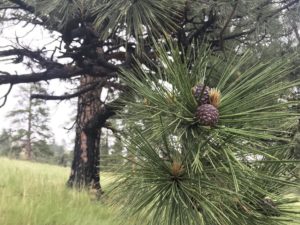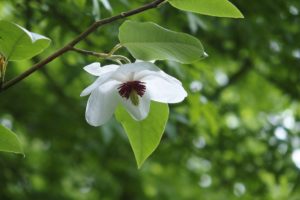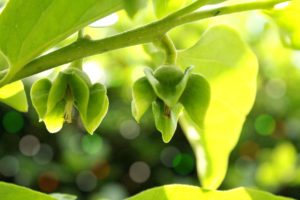Ecological Gardening with Climate Change to Prevent Future Invasions and Assist Native Migration
Webinar replay from October 11, 2019
 Species are adapted to tolerate a certain range of climate conditions. As a result, species around the world are shifting their ranges in response to climate change. But, many of these species – especially plants – won’t be able to keep up with the rapid pace of climate warming.
Species are adapted to tolerate a certain range of climate conditions. As a result, species around the world are shifting their ranges in response to climate change. But, many of these species – especially plants – won’t be able to keep up with the rapid pace of climate warming.
 Gardening with regionally native plants has the potential to expand native plant ranges and facilitate adaptation to climate change. The deliberate translocation of species in anticipation of climate change – termed assisted migration – is increasingly discussed as a strategy for conserving native species. Assisted migration could include everything from restoring local plant populations using seeds sources from warmer sites to planting seeds or seedlings outside of their known historical ranges. However, moving a new suite of species around to solve one problem could create new ones. Conservationists worry about unforeseen impacts to the recipient ecosystem, while invasive species managers cringe at the idea of new weeds to control. Invasive species cause declines in native biodiversity, negatively affect agriculture, and cost the U.S. billions of dollars each year in economic losses and control costs.
Gardening with regionally native plants has the potential to expand native plant ranges and facilitate adaptation to climate change. The deliberate translocation of species in anticipation of climate change – termed assisted migration – is increasingly discussed as a strategy for conserving native species. Assisted migration could include everything from restoring local plant populations using seeds sources from warmer sites to planting seeds or seedlings outside of their known historical ranges. However, moving a new suite of species around to solve one problem could create new ones. Conservationists worry about unforeseen impacts to the recipient ecosystem, while invasive species managers cringe at the idea of new weeds to control. Invasive species cause declines in native biodiversity, negatively affect agriculture, and cost the U.S. billions of dollars each year in economic losses and control costs.
 This talk will explore the idea of supporting assisted migration through our landscaping and gardening. We will look at risk through the lens of invasion ecology to see what that field can tell us about species that pose a higher risk or ecosystems that might be particularly vulnerable. We will also consider risks posed by assisted migration in the context of current practices for selecting ornamental plant species. I hope to convince you that the benefits of planting species native to warmer climes of temperate forests to our south generally outweigh the costs – particularly when compared to the status quo practices of importing and introducing species from outside the U.S.
This talk will explore the idea of supporting assisted migration through our landscaping and gardening. We will look at risk through the lens of invasion ecology to see what that field can tell us about species that pose a higher risk or ecosystems that might be particularly vulnerable. We will also consider risks posed by assisted migration in the context of current practices for selecting ornamental plant species. I hope to convince you that the benefits of planting species native to warmer climes of temperate forests to our south generally outweigh the costs – particularly when compared to the status quo practices of importing and introducing species from outside the U.S.
Dr. Bethany Bradley is an Associate Professor of Biogeography and Invasion Ecology in the Department of Environmental Conservation at the University of Massachusetts, Amherst. She is interested in how the geographical locations of species across landscapes and regions can inform ecological understanding of species distributions, invasion risk assessments, and conservation planning. Her research has a strong focus on terrestrial plant invasions, with a goal of understanding how invasion risk varies spatially in the context of human disturbance and climate change. Dr. Bradley also leads the Northeast Regional Invasive Species & Climate Change (RISCC) Management network, which addresses the question of how we can better manage for upcoming biological invasions in light of climate change.
Log in to your Membership account to watch the replay or become a member to gain access



